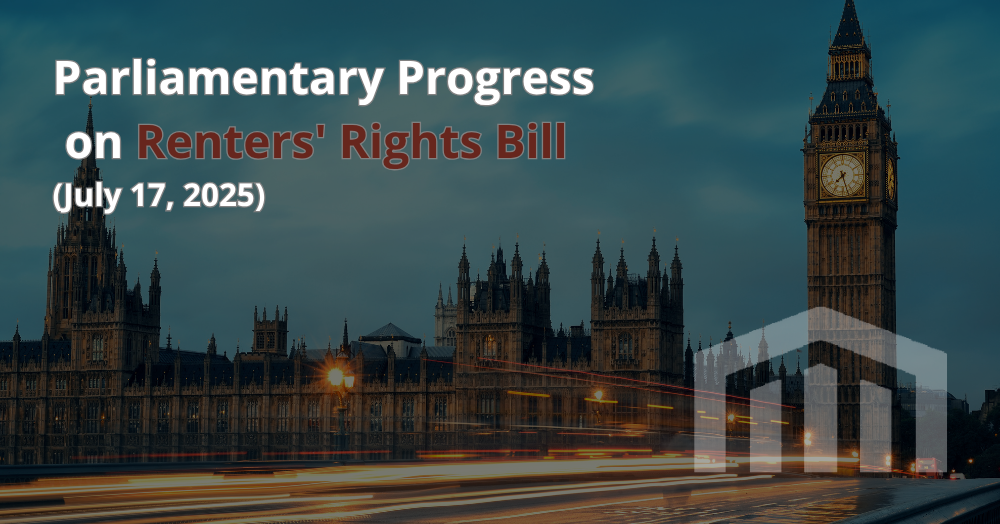
Things are Heating Up: Latest Update on the Renters’ Rights Bill From Putterills Lettings
If you’re a landlord or tenant in Hertfordshire and want to discuss how the Renters’ Rights Bill might affect you, please get in touch with the Putterills lettings team. We’re here to help you navigate the changes confidently and compliantly.
If you’ve been following the Renters’ Rights Bill (RRB), you’ll know it’s nearing the end of its journey through the House of Lords — and it’s getting interesting. The government has put forward its own amendments, and there’s already been plenty of fuss, especially around the withdrawal of pet insurance. But there’s more going on beneath the surface, so let’s break it down in plain English and tell you what it means for landlords and letting agents managing properties in Hertfordshire.
Report Stage Wrap-Up — What Just Happened?
On 15 July 2025, the Bill had its third and final session of the Report Stage in the House of Lords. This is one of the last chances for detailed debate and amendments before the Bill moves on. Following this, the Bill heads to the Third Reading on 21 July — usually a short stage to tidy up loose ends.
If the Bill passes the Third Reading, it returns to the House of Commons for any final agreement on amendments, then moves on for Royal Assent, where it officially becomes law. With Parliament’s summer recess starting on 22 July, there’s a tight window to get everything done this session — if not, Royal Assent will likely be delayed until after the break.
What’s Changed in the Government Amendments?
Good news first: The government’s amendments introduce sensible transition rules for existing tenancies, which is a big relief for landlords and agents.
Rent in Advance: The Bill stops landlords from requiring multiple months’ rent in advance for new tenancies. But if you already have existing tenancies where rent is paid in advance (quarterly or termly, for instance), those arrangements can continue until the tenancy ends. No need to scramble and change everything overnight — which is a win for everyone managing ongoing agreements.
Pet Insurance Withdrawal: This one caused a stir. Originally, the Bill allowed landlords to require tenants to have pet insurance to cover potential damage. But the government has now removed all references to pet insurance without offering landlords any alternative. So landlords will have to accept pets without the safety net of pet insurance or a higher deposit for pet damage — a tricky spot, especially since pet damage can be costly. Charging ‘pet rent’ might be an option, but that can be challenged if it pushes rent above market rate.
Rent Increases & Section 13 Notices: The Bill makes it compulsory for landlords to follow a strict statutory process (Section 13) to increase rent, with a two-month notice. If tenants challenge an increase at tribunal, the new rent won’t come into effect until after the tribunal decision — which might delay rent rises significantly. The government has added a power for the Secretary of State to amend the date rent increases take effect via regulation, possibly allowing backdating in the future. This is a hedge against tribunal delays overwhelming the system.
Joint Tenancies: If one tenant in a joint tenancy serves notice to quit, the new rules ensure all tenants must agree to shorten the notice period or withdraw a notice. This protects tenants from being left stranded if one tenant wants to leave early.
Student Accommodation: A new exemption means that certain purpose-built student accommodation (PBSA), especially where providers follow approved management codes, will be outside the Bill’s protections. This creates a two-tier rental market for students — large PBSA providers versus smaller private landlords — which feels unfair but is unlikely to change soon.
Local Authority Entry Powers: Councils can enter residential properties without landlord notice if they reasonably suspect unregistered or illegal tenancies to enforce the new landlord registration rules. This is a significant increase in enforcement powers and a reminder to keep registrations and records up to date.
So, What Does This All Mean for You?
There are no major U-turns here — just important tweaks and clarifications as the Bill moves towards becoming law. The key message is that landlords with existing tenancies won’t have to overhaul rent payments immediately, which saves a lot of hassle. But new tenancies will need to follow the new rules, including monthly rent payments and limited rent increases.
Pet owners and landlords alike face uncertainty with the removal of pet insurance provisions. Landlords will have to carefully consider how to manage pet-related risks under the new regime.
Student landlords need to understand whether their properties fall within the Bill or the PBSA exemption, as this affects the tenancy type and rights.
And finally, enforcement will be stepping up — with councils able to inspect properties more easily and a national landlord register coming soon, compliance is more important than ever.
When Will This All Kick In?
The Bill is expected to get Royal Assent after the summer recess, likely in September or October 2025. The government has promised a reasonable lead-in period, so don’t expect everything to change overnight — a commencement date sometime in 2026 seems realistic.
At Putterills, we’re keeping a close eye on these developments and will make sure our landlords and tenants get clear, practical advice every step of the way.
If you’re a landlord or tenant in Hertfordshire and want to discuss how the Renters’ Rights Bill might affect you, please get in touch with the Putterills lettings team. We’re here to help you navigate the changes confidently and compliantly.
